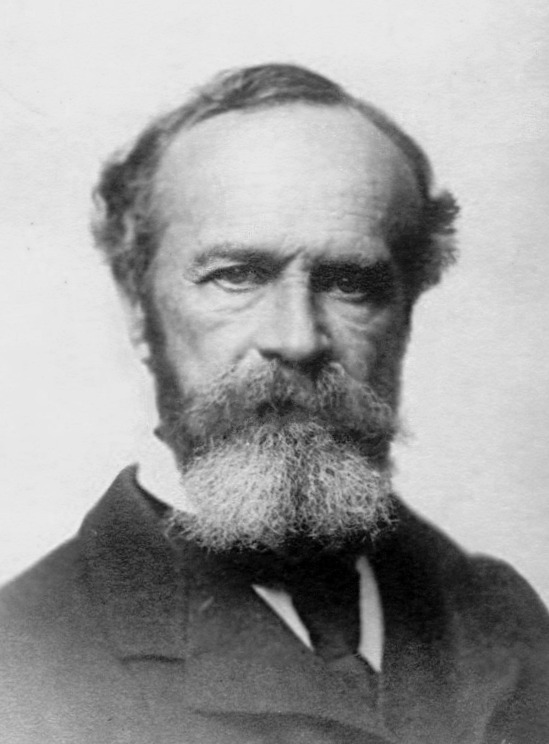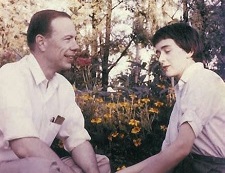|
Roger William Brown
Roger William Brown (April 14, 1925 – December 11, 1997) was an American psychologist. He was known for his work in social psychology and in children's language development. Brown taught at Harvard University from 1952 until 1957 and from 1962 until 1994, and at Massachusetts Institute of Technology (MIT) from 1957 until 1962. His scholarly books include ''Words and Things: An Introduction to Language'' (1958), ''Social Psychology'' (1965), ''Psycholinguistics'' (1970), ''A First Language: The Early Stages'' (1973), and ''Social Psychology: The Second Edition'' (1985). He authored numerous journal articles and book chapters. He was the doctoral adviser or a post-doctoral mentor of many researchers in child language development and psycholinguistics, including Jean Berko Gleason, Susan Ervin-Tripp, Camile Hanlon, Dan Slobin, Ursula Bellugi, Courtney Cazden, Richard F. Cromer, David McNeill, Eric Lenneberg, Colin Fraser, Eleanor Rosch (Heider), Melissa Bowerman, Steven Pinke ... [...More Info...] [...Related Items...] OR: [Wikipedia] [Google] [Baidu] |
Detroit, Michigan
Detroit ( , ; , ) is the largest city in the U.S. state of Michigan. It is also the largest U.S. city on the United States–Canada border, and the seat of government of Wayne County. The City of Detroit had a population of 639,111 at the 2020 census, making it the 27th-most populous city in the United States. The metropolitan area, known as Metro Detroit, is home to 4.3 million people, making it the second-largest in the Midwest after the Chicago metropolitan area, and the 14th-largest in the United States. Regarded as a major cultural center, Detroit is known for its contributions to music, art, architecture and design, in addition to its historical automotive background. ''Time'' named Detroit as one of the fifty World's Greatest Places of 2022 to explore. Detroit is a major port on the Detroit River, one of the four major straits that connect the Great Lakes system to the Saint Lawrence Seaway. The City of Detroit anchors the second-largest regional econo ... [...More Info...] [...Related Items...] OR: [Wikipedia] [Google] [Baidu] |
Steven Pinker
Steven Arthur Pinker (born September 18, 1954) is a Canadian-American cognitive psychologist, psycholinguist, popular science author, and public intellectual. He is an advocate of evolutionary psychology and the computational theory of mind. Pinker is the Johnstone Family Professor of Psychology at Harvard University, and his academic specializations are visual cognition and developmental linguistics. His experimental subjects include mental imagery, shape recognition, visual attention, children's language development, regular and irregular phenomena in language, the neural bases of words and grammar, as well as the psychology of cooperation and communication, including euphemism, innuendo, emotional expression, and common knowledge. He has written two technical books that proposed a general theory of language acquisition and applied it to children's learning of verbs. In particular, his work with Alan Prince published in 1989 critiqued the connectionist model of how children ac ... [...More Info...] [...Related Items...] OR: [Wikipedia] [Google] [Baidu] |
Renata Scotto
Renata Scotto (born 24 February 1934) is an Italian soprano and opera director. Recognized for her sense of style, her musicality, and as a remarkable singer-actress, Scotto is considered one of the preeminent singers of her generation. Since retiring from the stage as a singer in 2002, she has turned successfully to directing opera as well as teaching in Italy and America, along with academic posts at the Accademia Nazionale di Santa Cecilia in Rome and the Juilliard School in New York. Singing career Renata Scotto was born in Savona, Italy. She made her operatic debut in her home town on Christmas Eve of 1952 at the age of 18 in front of a sold-out house as Violetta in Verdi's '' La traviata''.The next day, she made her 'official' opera debut at the Teatro Nuovo in Milan as Violetta. Shortly after, she performed in her first Puccini opera, ''Madama Butterfly'', in Savona and was paid twenty-five thousand lire. Both roles would later become closely associated with her name. ... [...More Info...] [...Related Items...] OR: [Wikipedia] [Google] [Baidu] |
Tip Of The Tongue
Tip of the tongue (also known as ''lethologica'') is the phenomenon of failing to retrieve a word or term from memory, combined with partial recall and the feeling that retrieval is imminent. The phenomenon's name comes from the saying, "It's on the tip of my tongue." The tip of the tongue phenomenon reveals that lexical access occurs in stages. People experiencing the tip-of-the-tongue phenomenon can often recall one or more of the target word, such as the first letter, its syllabic stress, and words similar in sound, meaning, or both sound and meaning. Individuals report a feeling of being seized by the state, feeling something like mild anguish while searching for the word, and a sense of relief when the word is found. While many aspects of the tip-of-the-tongue state remain unclear, there are two major competing explanations for its occurrence: the ''direct-access view'' and the ''inferential view''. Emotion and the strength of the emotional ties to what is trying to be rem ... [...More Info...] [...Related Items...] OR: [Wikipedia] [Google] [Baidu] |
Vladimir Nabokov
Vladimir Vladimirovich Nabokov (russian: link=no, Владимир Владимирович Набоков ; 2 July 1977), also known by the pen name Vladimir Sirin (), was a Russian-American novelist, poet, translator, and entomologist. Born in Imperial Russia in 1899, Nabokov wrote his first nine novels in Russian (1926–1938) while living in Berlin, where he met his wife. He achieved international acclaim and prominence after moving to the United States, where he began writing in English. Nabokov became an American citizen in 1945 and lived mostly on the East Coast before returning to Europe in 1961, where he settled in Montreux, Switzerland. From 1948 to 1959, Nabokov was a professor of Russian literature at Cornell University. Nabokov's 1955 novel '' Lolita'' ranked fourth on Modern Library's list of the 100 best 20th-century novels in 2007 and is considered one of the greatest 20th-century works of literature. Nabokov's ''Pale Fire'', published in 1962, was ranked ... [...More Info...] [...Related Items...] OR: [Wikipedia] [Google] [Baidu] |
Lolita
''Lolita'' is a 1955 novel written by Russian-American novelist Vladimir Nabokov. The novel is notable for its controversial subject: the protagonist and unreliable narrator, a middle-aged literature professor under the pseudonym Humbert Humbert, is obsessed with a 12-year-old girl, Dolores Haze, whom he kidnaps and sexually abuses after becoming her stepfather. "Lolita", the Spanish nickname for Dolores, is what he calls her privately. The novel was originally written in English and first published in Paris in 1955 by Olympia Press. The novel has been twice adapted into film: first by Stanley Kubrick in 1962, and later by Adrian Lyne in 1997. It has also been adapted several times for the stage and has been the subject of two operas, two ballets, and an acclaimed, but commercially unsuccessful, Broadway musical. It has been included in many lists of best books, such as '' Time'' List of the 100 Best Novels, '' Le Monde'' 100 Books of the Century, Bokklubben World Library, ... [...More Info...] [...Related Items...] OR: [Wikipedia] [Google] [Baidu] |
Tip Of The Tongue
Tip of the tongue (also known as ''lethologica'') is the phenomenon of failing to retrieve a word or term from memory, combined with partial recall and the feeling that retrieval is imminent. The phenomenon's name comes from the saying, "It's on the tip of my tongue." The tip of the tongue phenomenon reveals that lexical access occurs in stages. People experiencing the tip-of-the-tongue phenomenon can often recall one or more of the target word, such as the first letter, its syllabic stress, and words similar in sound, meaning, or both sound and meaning. Individuals report a feeling of being seized by the state, feeling something like mild anguish while searching for the word, and a sense of relief when the word is found. While many aspects of the tip-of-the-tongue state remain unclear, there are two major competing explanations for its occurrence: the ''direct-access view'' and the ''inferential view''. Emotion and the strength of the emotional ties to what is trying to be rem ... [...More Info...] [...Related Items...] OR: [Wikipedia] [Google] [Baidu] |
Flashbulb Memory
A flashbulb memory is a vivid, long-lasting memory about a surprising or shocking event that has happened in the past. The term "flashbulb memory" suggests the surprise, indiscriminate illumination, detail, and brevity of a photograph; however flashbulb memories are only somewhat indiscriminate and are far from complete. Evidence has shown that although people are highly confident in their memories, the details of the memories can be forgotten. Flashbulb memories are one type of autobiographical memory. Some researchers believe that there is reason to distinguish flashbulb memories from other types of autobiographical memory because they rely on elements of personal importance, consequence, emotion, and surprise. Others believe that ordinary memories can also be accurate and long-lasting if they are highly distinctive, personally significant, or repeatedly rehearsed.Neisser, U. (1982). "Snapshots or benchmarks", Memory Observed: Remembering in Natural Contexts, ed. 43–48, San Fr ... [...More Info...] [...Related Items...] OR: [Wikipedia] [Google] [Baidu] |
Carnegie Mellon University
Carnegie Mellon University (CMU) is a private research university in Pittsburgh, Pennsylvania. One of its predecessors was established in 1900 by Andrew Carnegie as the Carnegie Technical Schools; it became the Carnegie Institute of Technology in 1912 and began granting four-year degrees in the same year. In 1967, the Carnegie Institute of Technology merged with the Mellon Institute of Industrial Research, founded in 1913 by Andrew Mellon and Richard B. Mellon and formerly a part of the University of Pittsburgh. Carnegie Mellon University has operated as a single institution since the merger. The university consists of seven colleges and independent schools: The College of Engineering, College of Fine Arts, Dietrich College of Humanities and Social Sciences, Mellon College of Science, Tepper School of Business, Heinz College of Information Systems and Public Policy, and the School of Computer Science. The university has its main campus located 5 miles (8 km) from Downto ... [...More Info...] [...Related Items...] OR: [Wikipedia] [Google] [Baidu] |
CHILDES
The Child Language Data Exchange System (CHILDES) is a corpus established in 1984 by Brian MacWhinney and Catherine Snow to serve as a central repository for data of first language acquisition. Its earliest transcripts date from the 1960s, and it now has contents (transcripts, audio, and video) in 26 languages from 130 different corpora, all of which are publicly available worldwide. Recently, CHILDES has been made into a component of the larger corpus TalkBank, which also includes language data from aphasics, second language acquisition, conversation analysis, and classroom language learning. CHILDES is mainly used for analyzing the language of young children and directed to the child speech of adults. During the early 1990s, as computational resources capable of easily manipulating the data volumes found in CHILDES became commonly available, there was a significant increase in the number of studies of child language acquisition that made use of it. CHILDES is currently direct ... [...More Info...] [...Related Items...] OR: [Wikipedia] [Google] [Baidu] |
Wug Test
Jean Berko Gleason (born 1931) is a psycholinguist and professor emerita in the Department of Psychological and Brain Sciences at Boston University who has made fundamental contributions to the understanding of language acquisition in children, aphasia, gender differences in language development, and parent–child interactions. Gleason created the Wug Test, in which a child is shown pictures with nonsense names and then prompted to complete statements about them, and used it to demonstrate that even young children possess implicit knowledge of linguistic morphology. Menn and Ratner have written that "Perhaps no innovation other than the invention of the tape recorder has had such an indelible effect on the field of child language research", the "wug" (one of the imaginary creatures Gleason drew in creating the Wug Test) being "so basic to what sycholinguistsknow and do that increasingly it appears in the popular literature without attribution to its origins." Biography ... [...More Info...] [...Related Items...] OR: [Wikipedia] [Google] [Baidu] |
Richard Herrnstein
Richard Julius Herrnstein (May 20, 1930 – September 13, 1994) was an American psychologist at Harvard University. He was an active researcher in animal learning in the B. F. Skinner, Skinnerian tradition. Herrnstein was the Edgar Pierce Professor of Psychology until his death, and previously chaired the Harvard Department of Psychology for five years. With political scientist Charles Murray (political scientist), Charles Murray, he co-wrote ''The Bell Curve'', a controversial 1994 book on human intelligence. He was one of the founders of the Society for Quantitative Analysis of Behavior. Early life and education Richard Herrnstein was born on 20 May 1930, in New York City, to a family of History of the Jews in Hungary, Hungarian Jewish immigrants; the son of Flora Irene (née Friedman) and Rezso Herrnstein, a housepainter. He was educated at the High School of Music & Art and the City College of New York, receiving a B.A. from the latter in 1952. In 1955, Herrnstein obtained his ... [...More Info...] [...Related Items...] OR: [Wikipedia] [Google] [Baidu] |







